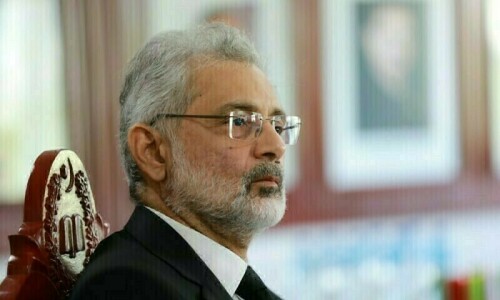Pakistan’s Chief Justice, Qazi Faez Isa, stated on Tuesday that the Supreme Court’s July 12 ruling in the reserved seats case was inapplicable because the appeals against it had not been decided.
In its July 12 short request, the High Court had made sense of that the 41 returned applicants — of the absolute of 80 MNAs — were and are the returned up-and-comers of the PTI and consequently individuals from its Parliamentary Party in the Public Get together for all sacred and lawful purposes.
The choice was pursued by the PML-N, PPP and Political decision Commission of Pakistan (ECP). The appeals have not yet been scheduled for hearing and are still pending.
The apex court had reprimanded the ECP for not implementing the July 12 judgment in the reserved seats case through its first clarification on Sept. 14, the day when the government was supposed to lay the constitutional package before both houses of parliament but was unable to do so.
The Supreme Court stated once more this past week that the Elections Act 2017 amendments cannot overturn its July 12 decision. The ECP was obligated to implement the judgment passed by the Supreme Court, in its letter and spirit, without seeking any further clarification, according to Justice Mansoor Ali Shah, who led an eight-judge majority in the 13-member full court. This was explained by the fact that amendments made to the Act through the Elections (Second Amendment) Act, 2024 following the release of the July 12 short order “will have no bearing.”
After the first, when CJP Isa questioned how it could have been issued when the matter was not on any cause list, this was the second clarification from the bench. This time, as well, the top judge objected to the clarification’s release and requested an explanation from the appropriate court officers.
CJP Isa made the following observation in his detailed minority verdict for the hearing on July 12: ” A judgment can be carried out in constitutional cases as well, provided that it is ultimately and definitively decided. The greater part’s short request and the greater part’s judgment didn’t finish up the requests.
“The very much trampled legitimate way was deserted by the greater part which made pointless and avoidable issues. According to Article 189 of the Constitution, there was no decision that could be said to be binding because the appeals had not been finally decided. Additionally, hatred of court procedures for any resistance of the ‘request for the court’, under Article 204 of the Constitution, can’t be started. Additionally, Article 188 of the Constitution’s right to review was effectively eliminated.
CJP Isa said he was calling attention to what he said were the “protected infringement and lawless acts” in the July 12 short request, the definite decision and the resulting two explanations.
He said the short request had “strayed from how courts have consistently worked [and] was novel and uncommon”.
“The greater part set up its own virtual court, allowed the creation of ‘a suitable application’ by the ECP and PTI, and coordinated that such fitting application would just be heard by them while sequestered in chambers. Because neither the Constitution nor any law permits what they did, the majority of the honorable judges effectively legislated.
CJP Isa further said: ” In really administering, the noteworthy appointed authorities in the larger part additionally went against themselves. They said that the ECP and PTI could “apply to the court,” but then said that only “judges constituting the majority” would hear the “appropriate application.” Not the only contradiction was this. The Supreme Court has decided that a review petition, which is a hearing of a case after it has been decided, should be heard by the same bench and number of judges that heard the case before.
The top appointed authority said most of the seat dismissed the pinnacle court’s points of reference, cut out a different eight-part “court” from the thirteen-part seat, developed further by not at last finishing up the becoming aware of the requests, presented courses of events and changed what the Constitution gave.
CJP Isa likewise said that the greater part had not discarded the case since they had allowed the documenting of utilizations by the ECP and the PTI, something which he said additionally kept the requests against the decision forthcoming.
The CJP additionally brought up issues with how the main explanation was given, adding that through its issuance without sending notification to the gatherings and hearing them, the larger part judges had “destroyed a few centuries of law”.
“The assertion that there was “no legal requirement” to hear the parties was not supported by any provision of the Constitution, law, or precedent. The obligatory necessity of receptiveness and straightforwardness were likewise violated. Courts’ trustworthiness and standing are undermined by secrecy and biased rulings, which engender suspicion and mistrust.
The detailed verdict, as well as the first and second clarifications, “cannot be stated to have been issued by a ‘court,'” according to the chief justice. They were issued by a coram non judice (a court without authority) forum. In addition, the fundamental principles of natural justice, due process, and a fair trial were not adhered to in this venue. As a result, and with the utmost respect, the same do not constitute legal orders and have no legal force. According to Article 189 of the Constitution, they also cannot be considered a Supreme Court “decision,” so they need not be followed or acted upon.



